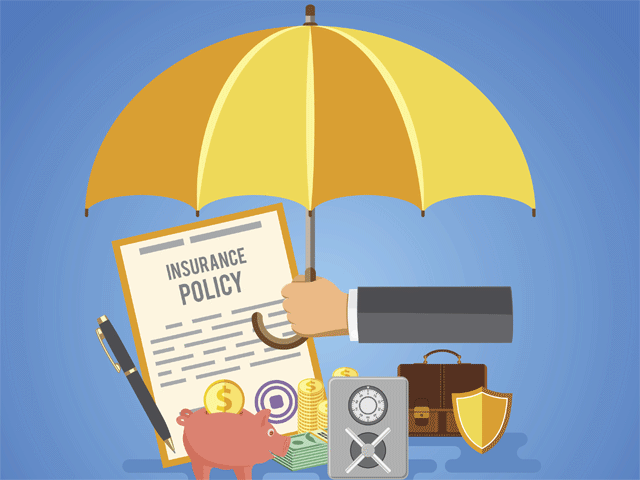50 Personal Finance Tips That Will Change the Way You Think About Money
Curated from: themuse.com
Ideas, facts & insights covering these topics:
11 ideas
·176K reads
879
7
Explore the World's Best Ideas
Join today and uncover 100+ curated journeys from 50+ topics. Unlock access to our mobile app with extensive features.
3 Financial Basics
- Create a Financial Calendar: prevent yourself from forgetting quarterly tax payments and to get credit reports.
- Check Your Interest Rate: Pay off loans, open saving accounts and negotiate credit debts based on interest rates.
- Track Your Net Worth: The difference between your assets and debt — it tells you your financial standing.
5.33K
36.2K reads
Budgeting Like a Pro
- Consider an All-Cash Diet, as limiting yourself to physical currency combats overspending.
- Set aside 1 minute a day to check on your financial transactions, to identify problems, track goal progress and set your spending tone.
- Allocate at least 20% of your income to financial priorities like emergency funds, debts and retirement fund.
- Budget about 30% of your income for nonbasic spendings, like entertainment. Abiding by the 30% rule, you can save and splurge at the same time.
5.66K
27.2K reads
How to Get Money Motivated
- Draft a Financial Vision Board, it motivates and helps you to stay on track with your financial goals.
- Set specific financial goals stating the reason, the way, numbers and dates.
- Adopt a spending mantra, a phrase that serves as a rule of thumb for how you spend.
- Love yourself. Taking control of your finances is part of that.
- Make bite-size money goals. Make the bigger ones but also small step goals to get there.
- Don’t be a financial fatalist, and switch to more positive mantras.
- Get your finances and body in shape. The discipline associated with regular exercising translates to managing your money well.
- Appreciate what you have now, instead of being a consumerist.
- Get a Money Buddy. Studies indicate people pick up good habits from friends with similar traits.
5.52K
18K reads
How to Amp Up Your Earning Potential
- When negotiating a salary, get the company to name figures first, otherwise you can’t know if you’re lowballing or highballing.
- Try to negotiate more than just your salary. Work hours, official title, parental leave, vacation time, and which projects you’ll work on could all be negotiable.
- Assume you qualify for unemployment and learn its rules. Many do qualify but are unaware.
- When negotiating salary emphasize the value you bring to the company as employers don’t care about your dreams but do about keeping a good employee.
4.7K
16.6K reads
How to Keep Debt at Bay
- Paying off the little debts can give you confidence to tackle larger ones. It’s recommended to focus on debts with the higher interest rates, but sometimes a moral boost is worth it.
- Don’t cosign loans. If the borrower misses a payment, your credit score plunges and the lender can charge you.
- Every student should fill out the FAFSA; many miss out grants that don’t need to be paid back because they are not filling out the forms.
- Choose federal student loans over private loans, they have flexible payment terms and often better interest rates.
- Investigate repayment options for federal student loan payments.
- Opt for mortgage payments below 28% of your monthly income. That’s a general rule of thumb on how much you can afford.
4.48K
12.3K reads
How to Shop Smart
- Evaluate purchases by cost per use. Higher cost products may last longer, but go unconsidered because of their initial price.
- Spend on experiences, not things, as they give you more happiness for your investment.
- Shop solo to avoid buying unnecessary things due to social influence.
- Spend on the real you, not the person you want to be.
- Ditch the overdraft protection as it often trips people into overspending.
4.92K
14.7K reads
How to Save Right for Retirement
- Start Saving ASAP. Money you put in your retirement fund now will have more time to grow through compound growth.
- Avoid cashing out your retirement account early as it prevents your money from being invested and leads to penalties and tax bills.
- Contribute money so your employer can match it if you have a 401(k)
- Invest your raise in your retirement savings. Up your automatic transfer to savings, and increase your retirement contributions.
4.35K
12.2K reads
How To Best Build And Track Your Credit
- Reviewing your credit report and your credit score regularly can save you money
- Keep your credit use below 30% of your total available credit, as it can ding your credit score. You calculate it by dividing the total amount on all of your credit cards by your total available credit.
- If you have bad credit, get a secured credit card. It helps build credit like a regular card but won’t let you overspend. And you don’t need good credit to get one.
4.24K
9.64K reads
How to Get Properly Insured
- Get more life insurance on top of your company’s policy, as it is often far too little.
- Get renters insurance and be covered from robberies, vandalism, natural disasters, and even things like the medical bills of people who get hurt at your place, damages you cause at someone else’s home, rent if you have to stay somewhere else because of damage done to your place.
4.16K
9.34K reads
How to Prepare for Rainy (Financial) Days
- Make savings part of your monthly budget.
- Keep your savings out of your checking account, as it may prevent you from spending it.
- Open a savings account at a different bank than where you have your checking account so it won’t be too easy transferring between them.
- Direct deposit to your savings account so only the money you want to spend goes to your checking account and your savings are preserved as they stay out of your mind.
- Consider switching to a credit union; they could be the place to go for better customer service, kinder loans, and better interest rates on your savings accounts.
- Only use your emergency savings account if you’ve lost your job, have a medical emergency, a car break, emergency home expenses (like a leaky roof), or you need to travel to a funeral.
- Think about investing if you have more than six months’ savings in your emergency account (nine months if you’re self-employed), and you have enough socked away for your short-term financial goals.
4.58K
8.53K reads
How to Approach Investing
- Pay attention to the fees you pay in your funds, also called expense ratios, as they can eat into your returns. It’s generally recommended to stick with low-cost index funds.
- Rebalance your portfolio once a year. You need to take a look at your brokerage account every once in a while, to make sure that your investment allocations still match your greater investing goals.
4.28K
11K reads
IDEAS CURATED BY
Valerie 's ideas are part of this journey:
Learn more about moneyandinvestments with this collection
Identifying and eliminating unnecessary expenses
How to negotiate better deals
Understanding the importance of saving
Related collections
Similar ideas
13 ideas
12 Personal Finance Tips and Tricks to Make You Rich
swiftsalary.com
1 idea
Read & Learn
20x Faster
without
deepstash
with
deepstash
with
deepstash
Personalized microlearning
—
100+ Learning Journeys
—
Access to 200,000+ ideas
—
Access to the mobile app
—
Unlimited idea saving
—
—
Unlimited history
—
—
Unlimited listening to ideas
—
—
Downloading & offline access
—
—
Supercharge your mind with one idea per day
Enter your email and spend 1 minute every day to learn something new.
I agree to receive email updates








